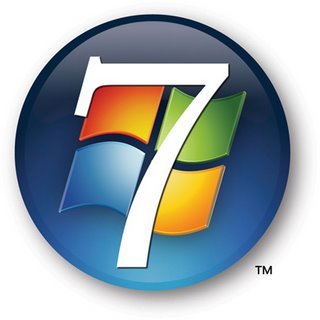Microsoft Working on Windows 7 for Netbooks
Get Tom's Hardware's best news and in-depth reviews, straight to your inbox.
You are now subscribed
Your newsletter sign-up was successful
Microsoft and Google are set for another rivalry, this time in the netbook market.
According to Microsoft CEO Steve Ballmer, the Redmond, WA software giant is engineering a version of its upcoming Windows 7 operating system specifically for netbooks.
During an investment meeting, Ballmer noted that the netbook sector is one of healthy growth for Microsoft, and that Windows is on approximately 90 percent of netbooks today. "We made a strategy a year ago that said, we will have high market share on netbooks," said Ballmer. "We priced to have high market share on netbooks. We did the marketing work to have a high market share on netbooks... we're now I think over 90 percent attach rate against netbooks, which I'm very excited about."
So what of Windows 7 on the netbook? Microsoft has already said, and many have already proved, that the upcoming Microsoft OS can run on current netbook hardware without major issues. In fact, the Win7 beta takes to netbook hardware much better than it's older brother Vista. As far as a netbook-specific version of Windows 7 is concerned, Steve Ballmer believes there will be a Windows 7 tailored for netbooks. "We have a real opportunity given that Windows 7 fits on netbooks, to think about having a special netbook edition," said Ballmer.
However, Ballmer stressed that consumers should be able to upgrade to a higher version of Windows 7 if they so desire. "Maybe somebody will want home, or maybe somebody will want the business edition of Windows 7 on a netbook. I want to make sure we facilitate letting the OEM or end customer, trade up if they want to trade up."
Many have speculated that Windows 7 Starter or Basic would be the option of choice for netbooks. However, those versions are strictly for emerging markets, and the possibility that Windows 7 Basic may start at $200, is already startling. Furthermore, Microsoft needs a light and inexpensive version of Windows 7 that can compete with Google's Android OS if it makes its way onto netbooks (which it will), and the two lowest tiers of 7 will likely be underdeveloped when compared to Android. Over the next year and beyond, the netbook sector will become a battleground, Windows 7 versus Android, and Microsoft looks like it's gearing up for battle.
For a transcript of the entire investor meeting, follow the link.
Get Tom's Hardware's best news and in-depth reviews, straight to your inbox.
-
Linux is better than either. Besides, if you're opting for dirt cheap netbook hardware, why would you want to shell out any amount of money for an OS when Linux is more than capable, and free?Reply
-
jhansonxi I think they will be able to get Windows 7 working well on netbooks®. I wonder how many "features" they will have to strip out of it and what the additional cost will be (software license and hardware requirements).Reply -
Flameout ugh this is not good news. your average person will by windows based netbooks because they're already familiar with windows, which will keep microsoft at a high marketshare, which will put future generations on the windows train, and the horrible cycle will just go on and onReply -
Flameout i hope android takes off now that google has so much advertising muscle. i wonder if it will compete with ubuntu.Reply
either way i hope linux will become more widely used -
jacobdrj My brother already uses the Windows 7 beta on his Acer Aspire One. He LOVES it. Much better than Linux, and faster than XP. He is trying to get me to beta-test 7.Reply -
neiroatopelcc DoItWithUbuntuLinux is better than either. Besides, if you're opting for dirt cheap netbook hardware, why would you want to shell out any amount of money for an OS when Linux is more than capable, and free?Because truely only 'nerds' can utilize linux properly to make it a rival for windows. Normal, ignorant, users don't have the knowledge, and rely on windows because that's what everybody else knows, and can help them with.Reply
-
resonance451 In many ways Windows is better than Linux because it offers a familiar interface with lots of support for what consumers use most. Welcome to the spoils of a monopoly. I don't see the average user installing all the auxiliary stuff needed to let Linux support even half of what Windows does.Reply
And Linux will never catch up. Never. Ever. Ever. Ever. Ever. It's open source: free. Companies are built to do one thing: make money. The money will stay with Microsoft and that's what will be developed for and supported. It's a circular loop. If Microsoft and Windows are finally toppled, it won't be by Linux. And it won't be any time soon, and not without dramatic changes in the marketplace.
